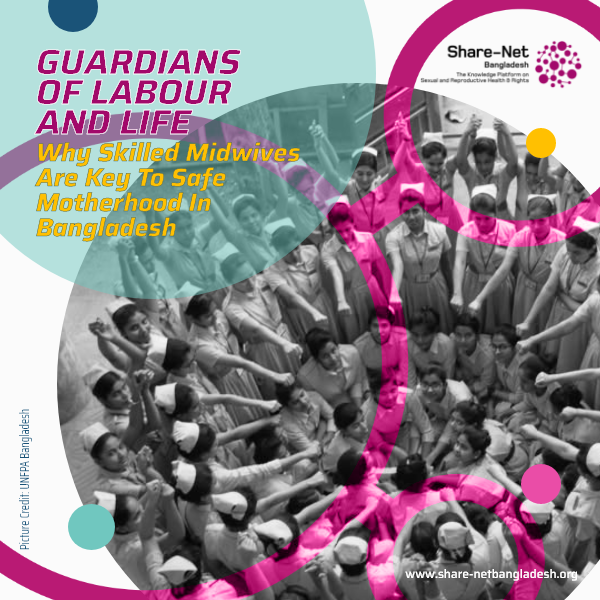Guardians of Labour and Life: Why Skilled Midwives Are Key to Safe Motherhood in Bangladesh
Each year on May 5, the world marks the International Day of the Midwife—a moment to honour the quiet strength of women who save lives in delivery rooms, crisis zones, and remote villages. In Bangladesh, their contribution is not just remarkable—it’s life-saving.
Since 2000, maternal mortality in Bangladesh has dropped by 79 percent, a feat made possible in large part by the rise of professional midwifery. Trained midwives now serve in Rohingya refugee camps, flood-prone coastal villages, and cyclone-devastated areas—bringing hope, safety, and skilled care to women at their most vulnerable.
Midwife Rokhsana, trained by UNFPA, once stabilised a pregnant Rohingya woman who was on the brink of death due to excessive bleeding. Her words capture the spirit of midwifery: “No mother should ever have to fear childbirth. I am committed to ensuring that every birth is a moment of joy and not sorrow.”
But despite this progress, the country faces a worrying gap: only 3,000 midwives have been deployed, far short of the estimated 25,000 needed to serve Bangladesh’s women and girls.
“Midwives are not just birth attendants,” says health policy analyst Dr. Farhana Nasrin. “They are frontline defenders of sexual and reproductive health rights (SRHR). They provide family planning, support survivors of gender-based violence, and ensure safe childbirth in emergencies.”
In the aftermath of Cyclone Remal in 2024, midwife Nazmin provided critical care to 29-year-old Swapna in a damaged clinic in Mongla. With no running water or electricity, she still managed to conduct 27 normal deliveries in just three months. Her dedication turned a distrusting village into a community of believers. “At first, people didn’t see us as skilled,” she recalls. “Now they say, ‘The midwife saved our daughter.’”
Research shows that every $1 invested in midwives returns $16 in economic and social benefits. Yet shrinking global aid and domestic underinvestment continue to undermine their reach. Without urgent policy action, Bangladesh risks reversing hard-won gains.
Investing in midwives is not optional—it’s essential. They are crucial for achieving safe motherhood, upholding reproductive rights, and delivering gender-responsive healthcare. Beyond the numbers, their human stories prove what works.
If Bangladesh is to end preventable maternal deaths and ensure universal access to SRHR services, it must scale up midwifery with proper training, fair deployment, protective measures, and community respect.
As Rokhsana reminds us, “We are not here just to deliver babies. We’re here to change lives.”
Source: The Daily Star
Picture Credit: UNFPA Bangladesh


